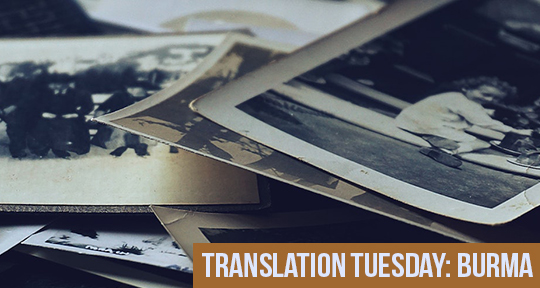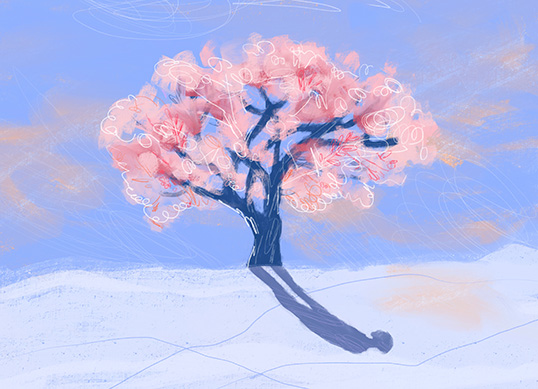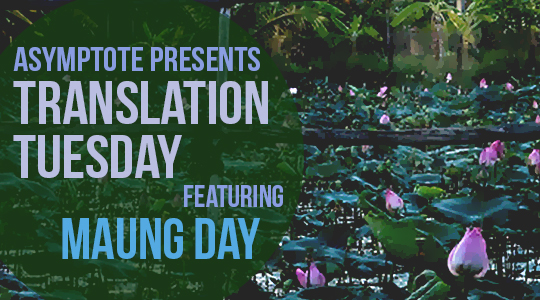This Translation Tuesday, let the three-time National Literary Award winner Nay Win Myint take you through the things that go unsaid and untold through the lens of a small Burmese family. First published in the January 1990 issue of Dream Blossom Magazine, translator Kenneth Wong brings us a moving story that courses through the past and its memories like a clear and wide river. Dive in!
1
The view from the Irrawaddy River revealed the towering cliffs. The goldish brown seawalls peered down at the river from their high vantage point. The clear green waves, the river’s vanguard, charged at the cliffs, encircled them, then continued to flow further. Full of bumps and humps, the ragged ancient layers of the cliff looked like a soft piece of cake sliced off with a jagged knife. The water didn’t touch the base of the cliffs. It left enough space for a rough, sandy footpath, leading to the villages along the river.
Coming up from Than Kaing by boat, once I spotted the high cliffs, I could tell I would soon reach Ye Nan Chaung—or, that I was approaching Nyaung Hla port. When the boat began to decelerate alongside the cliffs, all the emotions associated with this place, my mother’s hometown, became more intense. Walking up the slope from the water’s edge, I set foot in Nyaung Hla port, and soon all the scents of upcountry Burma came rushing towards me. Horse carts and cars awaited there, ready to take me to Ye Nan Chaung.
The road from Nyaung Hla to Ye Nan Chaung was quite scenic, passing by the hills and valleys, pump jacks, golden grasses, reddish-brown pebbled grounds, oil rigs in the distance, silvery lakes, and little bamboo huts. I didn’t like taking the shared car rides, even if it was the cheaper option. Hemmed in by the passengers and cargos, I wouldn’t be able to experience a thing. Just to save a small sum in the fare, I’d be missing the beauty of the land I rarely got to visit. I’d rather hire a whole horse-cart for myself. Going downhill, we hobbled ahead with white knuckles; going uphill, we craned our necks as the horse strained and struggled. These were the land’s characters that I wanted to take in fully. Along the road, the Irrawaddy River sometimes revealed itself in sudden flashes. In downhill turns, the cart’s wheels creaked with a series of tok, tok, tok … This was the pastoral music I associated with this region.
Mom was born here; she lived here for many years. Whenever she talked about her childhood, this land, this air, this water, and these rows of houses invariably came up: the Irrawaddy, the Burma Oil Company’s (BOC) staff quarters, the gas pipelines, the wild acacia and margosa trees … she would speak of them endlessly. I could only come back once every couple of years, and whenever I passed through it on a horse cart, I remembered her. When I thought about her, I also remembered the photos she showed me especially … READ MORE…





